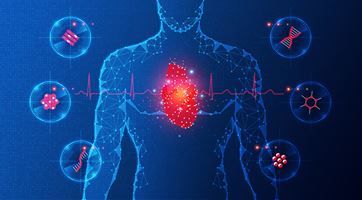
The Krannert Cardiovascular Research Center is a hub of synergistic collaboration at Indiana University School of Medicine where interdisciplinary teams of investigators conduct basic and clinical research integrating imaging, informatics, omics and engineering to develop novel diagnostics and therapeutics that may change how researchers and clinicians manage heart disease in the future.
Our investigators lead and collaborate on clinical trials across multiple centers, both nationally and internationally, generating robust and reliable data that will guide our researchers to develop better therapeutics and help our clinicians to better manage heart disease and improve heart health.
Since our founding in 2021, KCVRC researchers have accomplished significant achievements, including:
- 29 NIH Awards
- Increase in annual research funding from $1.1 million to $22.7 million
- 226 peer reviewed manuscripts
- 44 high-impact (IF>10) research manuscripts
- 12 patent applications filed
- First major KCVRC translational study launched: First-in-human FDA-approved new drug therapy targeting STEMI
Our interdisciplinary research team consists of basic and translational scientists, physician scientists and biomedical engineers, covering several areas of cardiovascular research ranging from cardiac imaging research and ischemic heart disease research to cardio-oncology research and disparity research.

